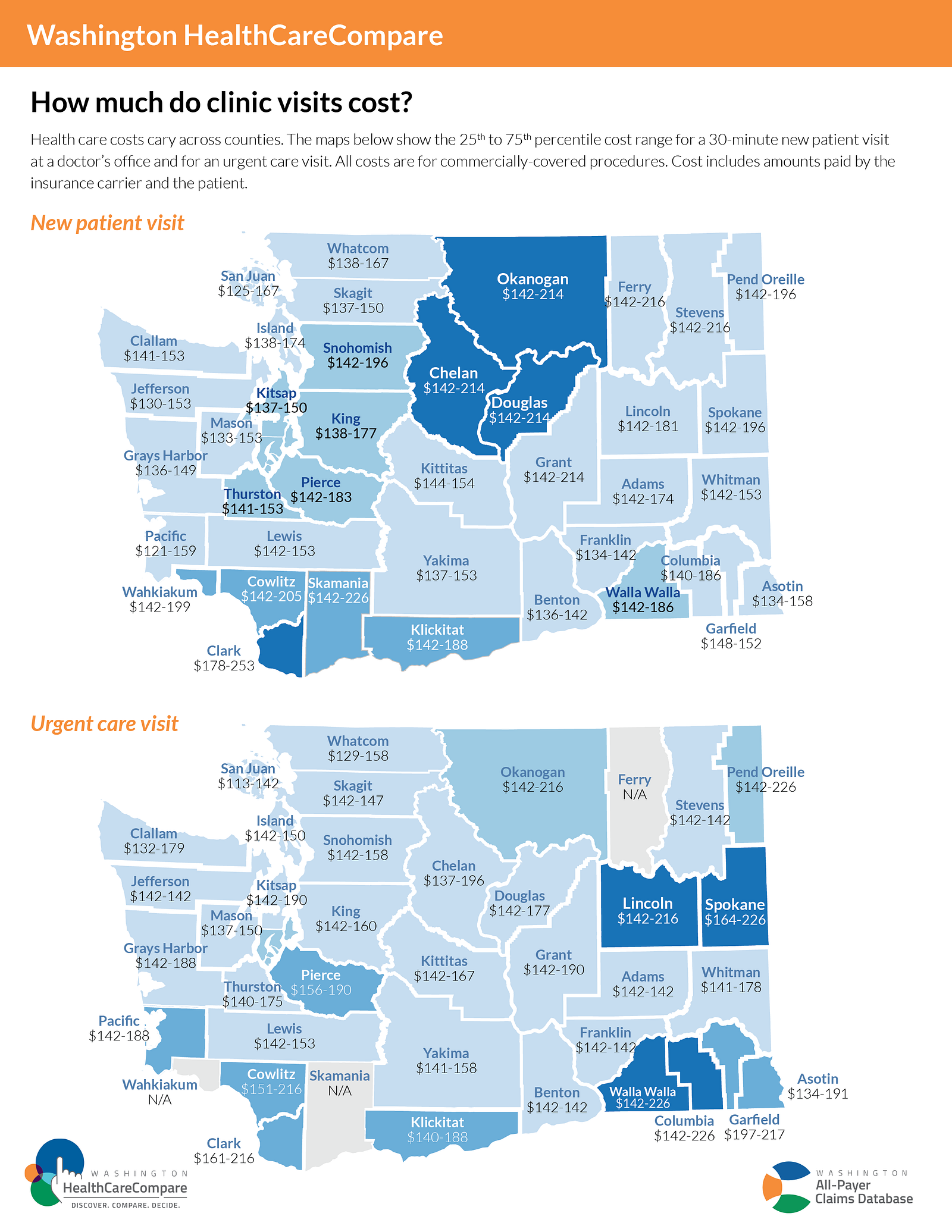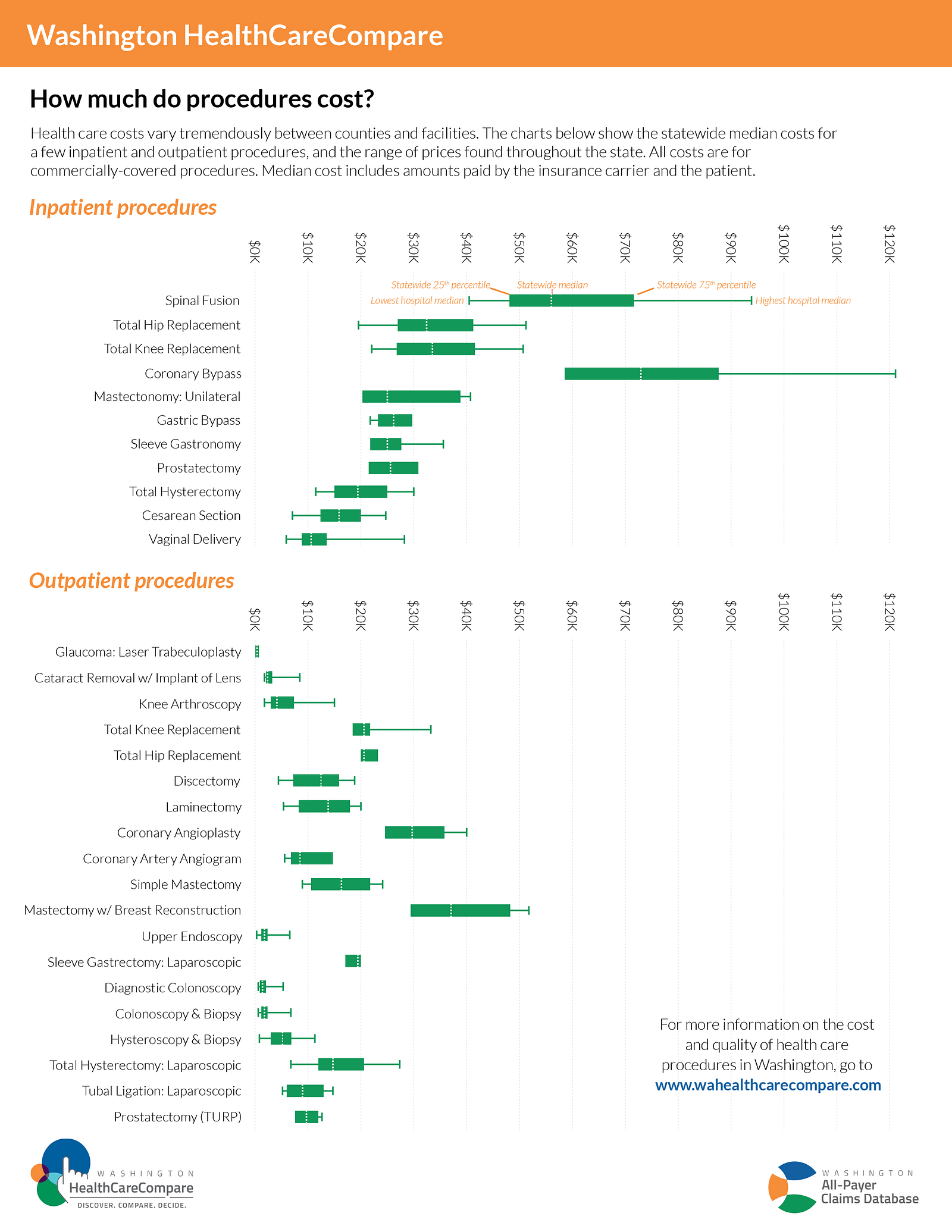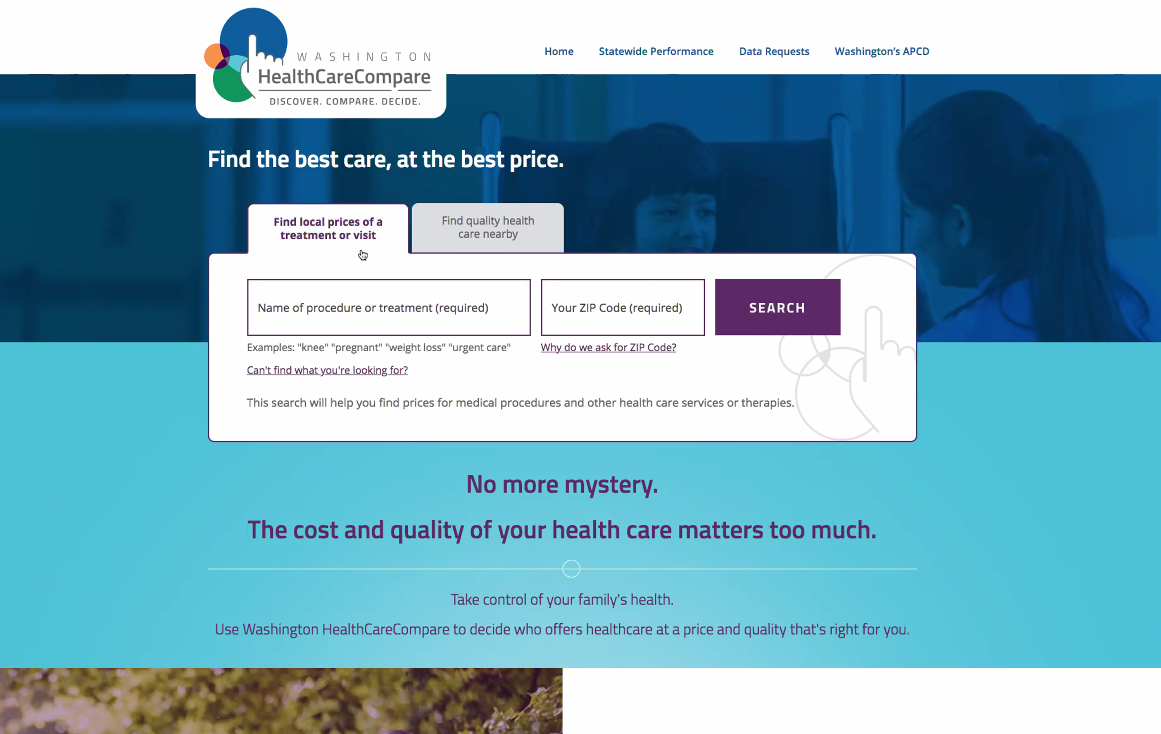If you or a loved one needed knee replacement surgery, would you want to know which surgeon in your community has the highest rating for quality of care? Would you like to know how much a knee replacement costs, on average, at all of the medical offices close to your home?
Those are the types of information easily accessed through Washington state’s new HealthCareCompare website, an online tool that launched today. The user-friendly website is part of the state’s larger effort to make health care costs more transparent, and gives the public access to health care price and quality information from the Washington All-Payer Claims Database. The database is the result of legislation proposed by the governor.
Currently, 20 states have databases but Washington is one of only six states making such data easily accessible online.
“Health care can be an enormous expense for many families, and giving people a way to compare the prices and quality will help people be better informed and prepared about their options,” Inslee said. “It’s also enormously helpful for lawmakers, employers and providers to have increased transparency about the costs related to using and buying health care.”
Washington’s database collects claims information from a wide variety of insurance and health care companies. Using the tool is as easy as searching by procedure or treatment and entering a ZIP code to find cost comparisons. For information on health care quality, users can search for ratings for a particular medical office or hospital.
Washington State Insurance Commissioner Mike Kreidler said the added transparency provided by HealthCareCompare could help make health insurance more affordable.
“The biggest factor driving up premiums is medical trend, and now, with access to the All Payers Claims Database, we’ll have a clear view into what’s really driving these costs,” Kreidler said. “The timing is critical, as premiums continue to rise and many consumers are hit with surprise medical bills, too. In our ongoing effort to end this unfair practice, we’ll now have actual pricing data to help us reach agreement and end this practice once and for all.”
In addition to helping Washingtonians find affordable, high-quality health care, the database will be a valuable tool for health plan managers, consumer advocates, hospitals, physician organizations, business leaders and policymakers, who can use the site to check cost and quality performance across the state.

Better cost estimates
Sharissa Tjok, an outreach enrollment coordinator with International Community Health Services in King County, said HealthCareCompare will help her provide clients with better information about health care costs. She oversees about 20 health care navigators, who answer patients’ health care questions and help them select the best health insurance. Many of their patients are members of the international community.
The cost of a specific medical procedure or treatment “is one of the major questions they always ask me,” Tjok said of her patients, but it is difficult for her to find an accurate answer.
She can do a Google search, but that often turns up estimates from other states, not her local area. She can try to track down the cost by calling the insurance company or the lab, but that’s only if the patient was able to get a code for the procedure from their doctor.
She said patients can get frustrated when they don’t know what costs to expect, and some become hesitant to pursue treatment because they are worried it will be too expensive.
Most of the time, when people buy a product, they already know the price, Tjok said, and it should be the same way with health care. That’s why “I’m excited about this tool,” she said.

Database result of landmark legislation
HealthCareCompare is the result of two bills requested by the governor. First came a bill in 2014 directing the Office of Financial Management to establish an all-payer claims database, which started out with public employee and Medicaid information. The following year, landmark legislation passed to include claims information from commercial health insurance plans, dramatically expanding the database’s uses.
Following passage of the 2014 legislation, Washington teamed up with the Center for Health Systems Effectiveness at Oregon Health & Science University, which it tasked with launching and overseeing the database.
“Washington has embarked on an important approach to improving health care delivery across the state,” said John McConnell, director of the center. “By providing transparent access to such information, residents will be able to identify affordable options personalized to their own needs. This may help to limit common barriers of health care such as unexpected cost or geographic distance.”
The database is the state’s most complete source of health insurance data, collecting and containing claims from about 30 commercial health care payers; the Medicaid program, including its five managed care plans; and Medicare Advantage, the HMO plan options for Medicare members. It also includes patient eligibility and enrollment data, historical insurance claims data, and results from the Statewide Common Measure Set — a way to measure health care quality and performance.
Data on dental services, workers’ compensation and Medicare services claims will be added to HealthCareCompare later this year.
In 2016, OFM awarded McConnell and the CHSE a three-year contract, totaling $5.5 million, to implement the database. To do so, the center supervises the cultivation and assessment of claims data provided by the various health plans, and insurances providers across the state, ensuring accuracy of information reporting. Once the data is processed, confirmed accurate and secured, it is added to the database.
HealthCareCompare contains data from more than 4 million Washingtonians, and the information is aggregated — meaning it can’t be traced to any individual — to ensure patient confidentiality.
The next phase of the project will focus on program sustainability, McConnell said. “Our objective is to offer useful data through robust products and services such as cloud-based analyst platforms and custom reports, designed to meet the diverse needs of the health-data marketplace across the state.”




